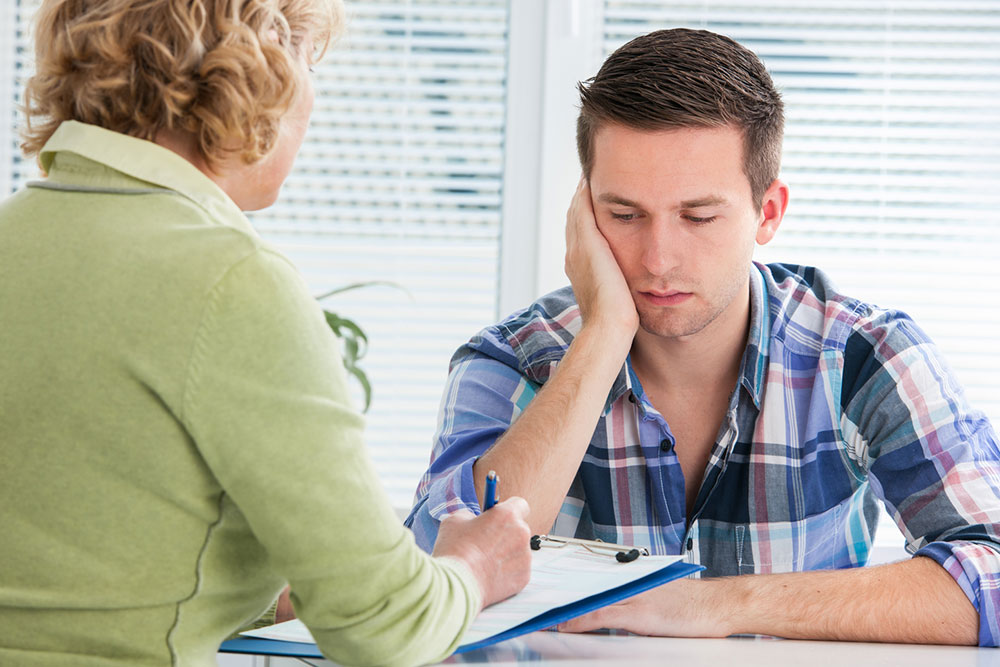
Depression – Causes and common signs and symptoms
Depression is a mood disorder that results in a persistent feeling of sadness. It is also referred to as clinical depression or major depressive disorder and affects how one behaves, thinks, and feels. Depression may result in several physical and emotional issues with an inability to perform routine activities. Unlike common notions, depression is not a weakness that one can snap out of. It needs proper treatment. Fortunately, most people feel better after psychotherapy and treatments.
Causes
One can find several conclusive depression tests and quizzes that can help with the diagnosis. However, for proper treatment and prevention, it is also crucial to understand the depression causes and risk factors. While experts do not know the primary cause of depression, studies point out that some factors may trigger it. These are as follows:
- Brain chemistry – A neurotransmitter imbalance, including dopamine and serotonin, can result in the development of depression.
- Genetics – If a biological sibling or parent suffers from depression, then one is three times more likely to develop it as opposed to the general population. But many people develop it sans any family history.
- Medical conditions – Chronic conditions, such as diabetes, cardiovascular disease, chronic obstructive pulmonary disease, and chronic pain, are also responsible for causing depression.
- Stressful life events – Challenging situations, like divorce, the death of a loved one, work problems, lack of support, isolation, changes in relationships, medical concerns, financial issues, and trauma, can also trigger depression.
Risk factors
Beyond the above-listed causes, some other factors can aggravate the susceptibility to developing depression. These are as follows:
- Enduring acute stress
- Lacking successful coping strategies
- Experiencing a severe head injury
- Using prescription remedies
- Having a major depression episode in the past
- No social support
- Enduring chronic pain
- Having a neurodegenerative condition like Parkinson’s or Alzheimer’s
Symptoms
It’s important to understand that depression is not merely a prolonged feeling of sadness. To determine if one is experiencing depressive symptoms, it may be helpful to take a depression test or quiz. However, it’s important to note that different people may experience varying symptoms. While some symptoms may affect one’s mood, others may affect one’s physical well-being. Additionally, symptoms can be intermittent or persistent.
General symptoms
These can vary in severity, duration, and frequency. But if one experiences the below-listed signs almost every day for at least 14 days, one probably is undergoing depression.
- Crying uncontrollably
- Fatigue or decreased energy
- Feeling pessimistic, worthless, or hopeless
- Feeling empty, anxious, or sad
- Talking or moving more slowly
- Difficulty making decisions, remembering, or concentrating
- Change in appetite
- Losing interest in things or hobbies once enjoyed.
- Feeling angry, annoyed, or irritated
- Inability to sleep
- Oversleeping
- Negative thoughts
- Chronic physical pain (digestive issues, cramps, pains, or headache) sans any apparent cause or one that does not heal with treatment
Children, teens, females, and males may encounter depression signs differently.
Typically, males experience depression signs associated with their:
- Emotional state, including feelings like anxiety, restlessness, aggressiveness, or irritability
- Emotional health, such as feeling hopeless, empty, or sad
- Sleep patterns, such as restless sleep, not sleeping through the night, excessive sleepiness, or insomnia
- Physical health, such as pains, digestive concerns, or fatigue
- Cognitive functions, like trouble concentrating, delayed responses in conversation, or struggling to complete tasks.
- Behavior such as losing interest, finding no joy in once-enjoyable activities, excessive tiredness, contemplating suicide, substance use, or participating in risky behaviors
Females may encounter depression signs associated with their:
- Emotional state, including feelings of irritability
- Overall emotional health, including feelings of emptiness, sadness, anxiety, or hopelessness
- Actions and conduct, such as losing interest in activities, withdrawing from social interactions, or experiencing thoughts of suicide
- Cognitive functions, such as slower thinking or speech
- Sleep habits, like difficulty sleeping through the night, waking prematurely, or excessive sleep
- Physical health, like reduced energy, heightened fatigue, alterations in appetite, weight fluctuations, bodily discomfort, headaches, or increased cramping
Children may encounter depression signs associated with their:
- Emotional state, including feelings like irritability, anger, sudden mood swings, or shedding tears
- Overall emotional health, like sensations of inadequacy (for example, feeling incapable of doing anything right), profound despair, and episodes of crying or intense sadness.
- Actions and conduct, like experiencing difficulties at school, an unwillingness to go to school, avoiding interactions with friends, classmates, or siblings,
- Cognitive functions, such as struggling with concentration, experiencing a decline in academic performance, or observing alterations in grades
- Sleep habits, like challenges falling asleep or experiencing excessive sleep
Depression is a common mental health condition that causes more than just persistent sadness. This is why it is essential to recognize the signs of depression in oneself or others and seek help from a healthcare professional at the earliest. Studies indicate that timely treatment can significantly improve depression symptoms and help people lead a better quality of life.




